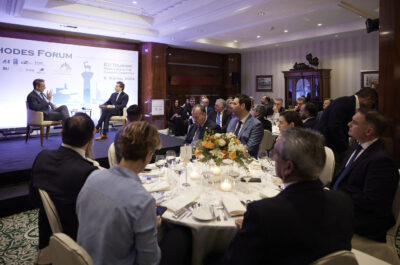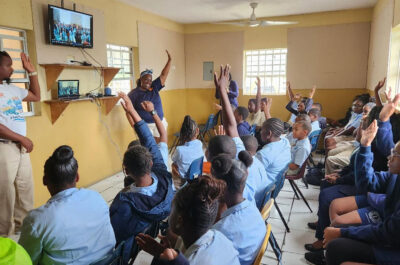Given that tourism and hospitality as an industry make up a large part of the global GDP and jobs offered, it is explored whether other forms of education, such as online education using Massive Open Online Courses (MOOCs), can give tourism a boost.
1. Introduction
As stated in the first article, what will be presented in the following series of articles is the inter-relationship of concepts of and tourism sustainability, education and sustainability, technologies and local communities. The topic of the previous article was about tourism sustainability and the current article is about tourism education and Sustainability.
2.2 Tourism Education and Sustainability
Education in tourism has been not discussed by researchers extensively. Education as approached by the different learning methods, is a central issue in tourism and concerns both future and pre-sent tourism professionals and tourists. Especially for tourists, it is claimed that they can learn in two ways. By an active way and by passive. The active way of training in tourism involves actions like studying on the destination to be visited, while the passive way deals with an easier process. A simple comparison of the values, of the customs and other characteristics of their own place with the place that are visiting. It has already been said that a trip, supports active learning and has positive effects on sustainability of the destination. Nevertheless, passive ways of educa-tion have better outcomes on the sustainability or the environment either derived from the pro-posed lifestyle or the economy for the destination. Passive tourist education has more to do with a mild acquaintance process with the destination and the dissemination of the responsibility that tourists have in protecting the destination that they are visiting.
Passive learning processes in tourism therefore favor the sustainability and sustainable knowledge needed to make decisions about the respect for the various ecosystems as these can be deter-mined by their endangered resources and of course the of broader economy that supports them (Gossling, 2017).
On the other hand, tourism and hospitality education has a cross-thematic nature and combines vocational education with Business Administration elements. The tourism and hospitality educa-tion has no clear impact on undergraduate or postgraduate students starting to pursue a business activity which means that academic institutions must continue the same effort to acquire business skills in tourism students (Arranz et al., 2016).
Given that tourism and hospitality as an industry make up a large part of the global GDP and jobs offered, it is explored whether other forms of education, such as online education using Massive Open Online Courses (MOOCs), can give tourism a boost. Education at all levels, and especially at higher education is directly affected by the means used to deliver educational content, like the e-learning platforms and the MOOCs, research shows that many teachers avoid the risk of adopting and applying these methods which they believe that they do not suit tourism be-cause they believe that tourism education is better suited by a blended academic (theoretical) and professional (vocational) learning method (Lin and Cantoni, 2018).
However, efforts and ideas to incorporate new technologies into tourism education to furtherly promote the sustainability and cost-effectiveness have been proposed, such as digital gamified learning in tourism education that has been suggested as a method that has a more direct impact on the shaping of future tourism professional behaviors (Adukaite et al., 2017).
So, the integration of technology into tourism education seems to be the solution, and the idea of 'Smart tourism' and 'smart tourism destinations' (STDs) have begun to develop in this direction. Smart tourism can work very well together with ICT, though several changes will be needed at a governmental and educational policy level, in order to further strengthen the technological aspect of tourism education (Femenia-Serra, 2017).
From the perspective of students studying tourism and hospitality, the expectations of choosing such a career seem to be clear, having realized and recognized the value of education in tourism and hospitality as well as their knowledge of the career opportunities that open up to them in these areas. Although research shows that there is some uncertainty among students about whether their academic qualifications will be later recognized in the workplace and also the relative stress of working conditions, the research concludes that tourism and hospitality suffer from the failed attempts of those involved to provide a specific curriculum, that can respond to the real needs of the market in order to provide the required skills to students pursuing a particular field degree (Nachmias, Walmsley and Orphanidou, 2017).
References
- Adukaite, A. et al. (2017) "Teacher perceptions on the use of digital gamified learning in tourism education: The case of South African secondary schools", Computers & Education, 111, pp. 172-190. doi: 10.1016/j.compedu.2017.04.008.
- Arranz, N. et al. (2016) "The effect of tourism education on students’ entrepreneurial voca-tion", Scandinavian Journal of Hospitality and Tourism, 17(3), pp. 312-330. doi: 10.1080/15022250.2016.1157035.
- Femenia-Serra, F. (2017) "Smart Tourism Destinations and Higher Tourism Education in Spain. Are We Ready for This New Management Approach?", Information and Communication Tech-nologies in Tourism 2018, pp. 437-449. doi: 10.1007/978-3-319-72923-7_33.
- Gossling, S. (2017) "Tourism, tourist learning and sustainability: an exploratory discussion of complexities, problems and opportunities", Journal of Sustainable Tourism, 26(2), pp. 292-306. doi: 10.1080/09669582.2017.1349772.
- Lin, J. and Cantoni, L. (2018) "Decision, Implementation, and Confirmation: Experiences of In-structors behind Tourism and Hospitality MOOCs", The International Review of Research in Open and Distributed Learning, 19(1). doi: 10.19173/irrodl.v19i1.3402.
- Nachmias, S., Walmsley, A. and Orphanidou, Y. (2017) "Students’ perception towards hospitali-ty education: An anglo-cypriot critical study", Journal of Hospitality, Leisure, Sport & Tourism Education, 20, pp. 134-145. doi: 10.1016/j.jhlste.2017.04.007.
Konstantinos Tsagkarakis holds a master degree in Tourism policy from the University of the Aegean (Chios, Greece) as well as a master degree in the science of geography and spatial management from the Charokopion University. He also holds a degree in pedagogies (Higher School of Pedagogic and Education, Athens, Greece). He works as an educator in vocational training institutes and he teaches in the travel agency department, and in technical tertiary education (Technological Educational Institute of Lamia, Greece) in which he teaches in the departments of Tourism Industry as well as the department of Commerce and Advertising. Moreover, he teaches in the English-speaking section of the department of the Technological Educational Institute of Piraeus, which is meant for exchange students (exchange programmes: Erasmus and Mundus). Currently he is a vocational educator in Tourism Industry departments of both private and public Vocational Training Institutes (in Greek: IEK) and Vocational Training Centres (in Greek: KEK). Apart from being an educator, he has experience in business consulting: he had supported in the participation of local administration businesses in trans-regional EU funded programmes in the frame of the European Union Initiative INTERREG IIIC. Finally, he has experience in consulting private businesses.






























































































































































































































